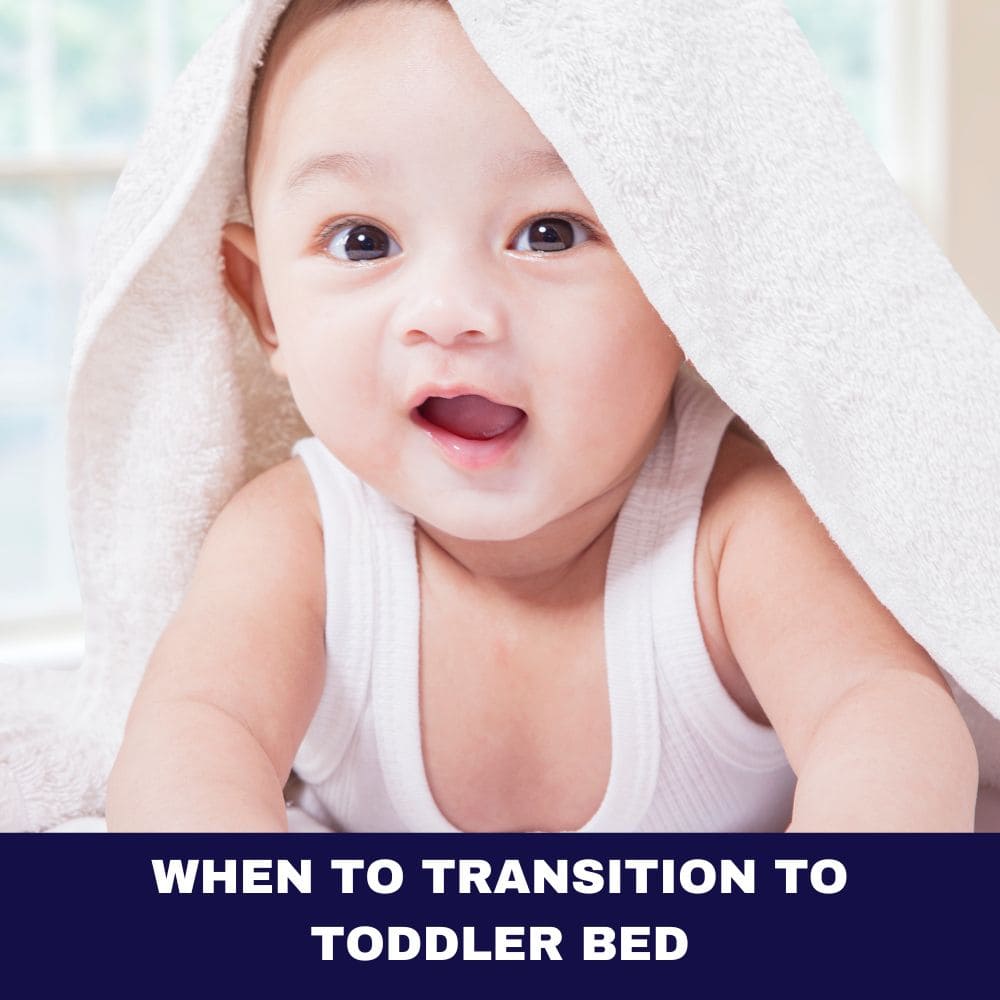If you have a baby who seems to get by on less sleep than other little ones, you may wonder if something is wrong. Why doesn’t my child need a full 12-14 hours of sleep like other babies? Is she getting enough rest or am I facing serious sleep deprivation?
As a mom of two low sleep needs kids myself, I totally understand the confusion and concern. But I’m here to tell you that you’re not alone and with a few helpful strategies, you can support your low sleep needs baby to sleep better.
What is a “Low Sleep Needs” Baby?
A “low sleep needs” baby is one that consistently gets by on significantly less sleep than average for their age, mostly due to their unique personality and natural sleep rhythms. While many parents strive for that elusive 12-14 hours of solid sleep at night for their babies, children with lower sleep needs may only clock 9-10 hours total in a 24 hour period.
This doesn’t necessarily mean something is “wrong” with your child or that they’re not getting adequate rest. For these lower sleep needs kids, they simply don’t require as much sleep as peers to feel refreshed. Think of it as them operating on their own healthy bandwidth.
Sleep guidelines provide averages across babies for each age range. But just like adults, each child has their own individual sleep needs within normal ranges based on genetics, temperament, environment, and other factors. Your lower sleep needs baby isn’t worse off from the discrepancy.
Signs Your Baby Has Low Sleep Needs
Wondering if your child fits the bill for lower than average sleep needs? There are a few key signs to clue you in:
- Catnapping – Your baby may take lots of short, 30 minute power naps throughout the day rather than lengthy 1-2 hour naps.
- Transitioning early – Your baby may drop naps or transition sleep cycles earlier than typical windows.
- Waking up happy – Despite less sleep, your baby likely wakes up smiling and cheerful, ready to play.
- High activity times – Your baby may have longer awake windows full of play, tummy time, and engaging with parents.
Pay attention as well to your baby’s demeanor after sleep. If they wake up content and energetic, it’s a sign that they’re operating on an internal sleep drive that works for them. Don’t try to force longer sleep times on them if the indicators point to lower sleep needs being natural for your child.
When Do Low Sleep Needs Become a Problem?
While most babies with lower sleep needs thrive just fine, it’s reasonable as a parent to wonder – when should I worry about under-sleeping? At what point do low sleep needs in babies become problematic and require intervention?
Here are a few red flags to watch out for:
- Failure to meet developmental milestones or weight gain goals
- Increased fussiness, crying, and irritability
- Lack of interest in toys, books, or activities
- Dark circles under the eyes
- Growth curve that drops percentiles between appointments
If you observe one or more of these warning signs along with chronically low sleep durations, do reach out to your pediatrician right away. There may be an underlying issue interfering with sleep quality or other factors at play requiring further evaluation.
In rare cases of extremely low sleep needs well below normal ranges, sleep studies, blood tests, EEGs, metabolic or genetic disorder testing may be warranted to check for issues. But for the majority of happy, developing babies at the lower end of average sleep needs, no special treatment is required. Just extra TLC for their short sleep cycles.

Don’t Worry About Sleep Deprivation
It’s understandable as a parent to panic when your baby doesn’t seem to need “enough” sleep. Our minds instantly go to extremes like chronic sleep deprivation. But rest assured, true sleep deprivation is quite rare in babies and children due to their built-in biological sleep drives.
Rather than obsessing over specific nighttime sleep hours, try looking at your baby’s total sleep in a 24 period. Their scarce nighttime sleep may be balanced out by healthy napping during daytime hours. If your baby is happily awake and meeting milestones on track, take comfort that their overall sleep is likely sufficient.
Pediatricians also emphasize that sleep quality outweighs quantity when assessing for sleep deprivation. So even if your baby sleeps less than guidelines suggest, the sleep they do get could still be restorative. Pay attention for cues of sleep deprivation such as consistent fussiness, lack of interest in toys or play, weight changes, or delayed development.
Evaluate Your Baby’s Realistic Sleep Needs
To determine if your baby truly exhibits lower than average sleep needs, have a look at this handy sleep range chart by age:
Newborn – 16-18 hours total per day
6 months – 14-15 hours total per day
9 months – 14 hours total per day
12 months – 13-14 hours total per day
Remember that temporary dips or increases can occur during major developmental leaps, illness, trips, etc. But in general, if your baby consistently sits at the lower end of these daily sleep totals, they likely have lower sleep needs.
For my son, he dropped to only 10 hours total a day by 8 months old and has stayed steady at 11 hours most days since age 2. My daughter has always hovered between 12-13 hours. Every child is different!

Tips to Help Your Low Sleep Needs Baby
If you do in fact have a low sleep needs baby, don’t fret! With a few helpful sleep strategies tailored to their unique rhythms, you can help them clock more quality sleep. Here are my top 7 tips:
1. Create an Optimal Sleep Environment
Ensuring your baby has a soothing sleep environment is Foundational, no matter their total sleep needs. Work on optimizing these key elements:
Bedroom
- Cool, dark room
- Sound machine for white noise
- Blackout curtains to limit light
- Comfy rocker for night feeds
Crib
- Firm, safety-approved mattress
- Breathable mesh crib bumper
- Only a tight mattress sheet
- Wearable blanket or sleep sack
Pay attention as well to baby’s preferred temperature, lighting, and noise levels to create a sleep haven tailored to their needs.
2. Establish a Soothing Bedtime Routine
Instilling a consistent, relaxing bedtime routine is proven to enhance sleep quality and duration since it cues your baby’s body to start winding down for rest.
Aim for a 20-30 minute routine. Great elements to incorporate include:
- Calm playtime
- Warm bath
- Massage
- Pajamas and sleep sack
- Dim lights
- Quiet activities like cuddling, nursing, or reading books
- Putting down drowsy but awake
Stick as closely to this routine sequence each evening to tap into the power of sleep associations.
3. Adapt Schedule to Baby’s Needs
Instead of forcing your low sleep needs baby to fit a generic “sleep schedule”, tailor wake windows and nap times specifically to their demonstrated sleep rhythms.
Pay close attention for a week or two to when your baby naturally gets tired and aim to initiate sleep around those times. Avoid letting them become overtired but also resist keeping them up too long in hopes of extending night sleep.
Work with your pediatrician as well to determine age-appropriate wake windows and total daily sleep targets that match your baby’s disposition. An adapted schedule for lower sleep needs prevents imposing inconsistent, poor-fitting sleep expectations on your child.
4. Limit Noise and Disruptions
Since your low sleep needs baby already rests less than average, it’s extra essential to protect their sleep once they actually nod off. Ensure their sleep environment is as free as possible from disturbances.
- Turn phones to silent/vibrate
- Use a white noise machine
- Keep bedroom dark and cool
- Encourage quiet play if they share a room
- Buy a sturdy crib and mattress
- Rearrange room for better sleep
Aim to limit disruptions, even small noises or temporary light exposure during the night. The more uninterrupted sleep cycles your baby can complete, the higher quality their restricted sleep will be.

5. Rule Out Diet or Health Issues
In some cases, variables like food sensitivities, gastrointestinal reflux, or illness can negatively impact total sleep. It’s important to rule these out or treat them.
- Discuss symptoms with your pediatrician
- Trial dairy/soy free diets
- Evaluate spitting up or vomiting
- Monitor for ear infections
- Assess stuffy nose or cough
- Consider sleep studies for apnea
If your baby exhibits other symptoms along with lower sleep, speak to your pediatrician. Certain dietary modifications or medication may help improve comfort allowing your baby longer, higher quality sleep if a health issue exists.
6. Try Customized Sleep Training
While general sleep training often focuses on length and consolidation of night sleep, with a lower sleep needs baby, quality becomes vital. More customized methods can assist.
Gentler options like:
- Fading bedtime checks
- Positive routines
- Scheduled awakenings
- Gradual extinction
Can help reinforce the desired sleep schedule without forcing unrealistic duration expectations. Work with a sleep consultant to explore sleep training approaches that respect your baby’s lower sleep bandwidth.
7. Chat with Your Pediatrician
If you’ve tried various approaches and remain concerned your child isn’t getting sufficient sleep, discuss worries with your pediatrician. Share your observations about sleep quality, developmental milestones, and waking temperament.
Reputable pediatricians will reassure if your baby is healthy while providing tips to optimize sleep quality within your baby’s normal range. Seek multiple opinions if needed until you find balanced guidance.
While Vitamin Zzz’s are important for babies, each child comes pre-programmed with their own sleep tendencies. As long as your low sleep needs baby is growing well and meeting milestones on track, you can rest easy too. Implement a few of these tailored strategies to help them sleep as soundly as possible within their unique sleep needs. Over time, you’ll discover the wonder of embracing your child exactly as they are – low sleep needs and all!
FAQ – Low Sleep Needs Baby
Will my low sleep needs baby just grow out it eventually? Do they turn into low sleep needs adults?
In most cases, yes – babies mature to have slightly increased sleep needs as preschoolers and older children. However, many chronically lower sleep needing babies do become lower sleep needing adults based on genetics and innate circadian rhythms. But take heart, as they grow, they adapt better to short sleep cycles.
How can I get my low sleep needs toddler to sleep longer so I have a break?
Try limiting nap duration to 30-45 mins (not eliminating naps which causes over-tiredness). Do activities like water play to fill awake times. Accept quiet downtime like reading or puzzles. Lower sleep needs children can play independently better over time while you rest.
Should I night wean my 1 year old low sleep needs baby since he doesn’t sleep much anyhow?
No, nutritional advice is to sustain night feeds until at least age one. However, don’t allow snacking overnight – stick to just 1-2 feedings. This prevents habits but still meets needs in that first year.
My low sleep needs baby fights bedtime and takes forever to fall asleep. What can I do?
With lower sleep drive babies, bedtime resistance is common. Try making the hour before bedtime very boring – low lights, no play, soft music. Give a calming bath and massage. Be gentle but firm at bedtime. Consider using a TimeTimer visual countdown. Validate their feelings but stick to the routine.
Instead of napping, my young toddler just plays in her room for hours. Is this okay?
With low sleep needs kids, quiet solo play provides some restorative value, though not equivalent to sleep. Use baby monitors/cameras ensure safety. At younger ages, cap “quiet time” to prevent overtiredness. As they grow older, independent play becomes an acceptable alternative as naps decrease. Just gauge if more night sleep is needed.











